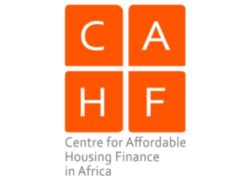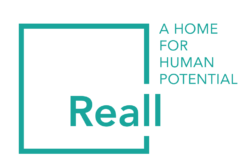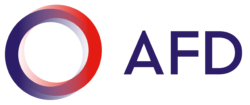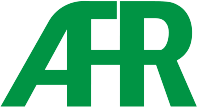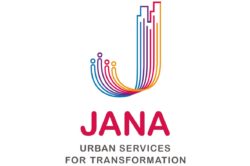Market Shaping Indicators - Overview
Introduction
This section of Reall’s Dashboard presents the work of the Market Shaping Indicators, a joint initiative of the Centre for Affordable Housing Finance in Africa (CAHF) and Reall.
Supported by the UK and Swedish governments, Reall is a market innovator and investor in affordable housing for the bottom 40 percent of the income pyramid in Africa and Asia. Headquartered in the UK and possessing over 30 years’ experience in the sector, Reall’s priority focus is in Kenya, Nigeria, Uganda, India and Pakistan, with a wider footprint that includes Ghana, Mozambique, the Philippines, and Zimbabwe. Reall and its network of in-country partners specialize in affordable housing and end-user financing solutions, while also tackling systemic political, regulatory, and financial barriers through strategic brokering interventions. By evidencing the cross-cutting developmental impact of housing and demonstrating the commercially viable investable opportunity, Reall leverages private sector actors and resources to transform markets and accelerate delivery at scale.
The Centre for Affordable Housing Finance in Africa has been operating as an independent think tank in South Africa since May 2014, pursuing its mission of making Africa’s housing finance markets work. Supported by the French and UK governments, as well as other funders and partners, CAHF’s work extends across the continent. CAHF brings information to the market place to enable stakeholders in the public and private sector to make policy and investment decisions in favour of improved access to affordable housing. CAHF’s emphasis is on the role that finance plays in realising this, and on championing market intelligence to stimulate investor interest and support better policy. CAHF is highly networked and engages with stakeholders at the local, national, regional, continental and global levels to support the realisation of investment towards affordable housing in Africa.
Importance of Market Data
Market intelligence and data is fundamental market infrastructure for the housing finance sector. A key constraint undermining private sector participation and good policy engagement in affordable housing is the availability of data and market intelligence to facilitate risk-taking and decision-making. More accurate and transparent data serves as market infrastructure and improves decision-making, enables market segmentation and facilitates risk management, thereby facilitating investment and better-targeted policy making.
All institutions in a country’s housing value chain generate data, whether for private or public use, or simply as a by-product of their business. The bulk of this data isn’t publicly available though, even when collected by public institutions. When it is available, accessibility is similarly disparate, ranging from sophisticated online portals, to buried within lengthy paper reports. This combination of limited availability and accessibility constrains the market and limits investment.
Process
In 2019, Reall partnered with CAHF to develop a set of Market Shaping Indicators (MSI), merging Reall’s ambitions with CAHF’s Data Agenda project, which seeks to identify and disseminate available data, and encourage all participants in the value chain, particularly regulators, administrators and municipal officials to explore the role they can play in market development through sharing more data, more often. This reflects Reall’s mandate of shaping the development of affordable housing markets and serving lower income households in the Bottom 40% of the income pyramid, and builds on the existing work of CAHF to collate and disseminate data on housing markets in Africa, to inform action and catalyse investment.
Working with data consultancy 71point4, an initial set of indicators was created spread across the housing value chain, divided into land and infrastructure; construction; sales and rental; maintenance and management; enabling environment; economic environment; and demand. Using these, data collection was undertaken in eight countries across Africa (Kenya, Nigeria, Uganda, Mozambique, Ghana, Tanzania, Cote d’Ivoire, Morocco), with sources ranging from international (such as World Bank Ease of Doing Business indicators), national (statistics bureaus, ministries, central bank), to local (Reall delivery partners, private developers, banks). Following this data collection and scoping process, indicators were reviewed and adjusted based on learning from the process to date. This rationalisation resulted in a list of 117 indicators for Africa.
Following this, Reall took the framework and, with support from Impetus Advisory Group and JUST, implemented it in Pakistan and India respectively. Similarly, with support from AFR, CAHF and 71point4 did the same in Rwanda.
In this Dashboard, Reall presents the data from this first round of data collection across 10 countries in Africa and Asia. This work will continue to be built on as further data is gathered, and as the initiative is rolled out to further countries, with India to be added in early 2022.
Next Steps
Reall, CAHF and 71point4 and others are actively working to build on the data that has been collected to date, filling gaps in indicators that were added post-data collection, and working with data holders to improve quality and accessibility. Targeted engagement plans are being built with many of the primary holders of affordable housing data, along with strategies for leveraging this data to contribute to our wider influencing objectives.
The Market Shaping Indicators project is a work in progress. Significant gaps exist in data, which will be filled in future revisions. We would recommend checking back regularly for updates.
Country data can be explored through the map at the top of the page, or the country tiles at the bottom, and data can be downloaded by clicking on “Download Data”.
